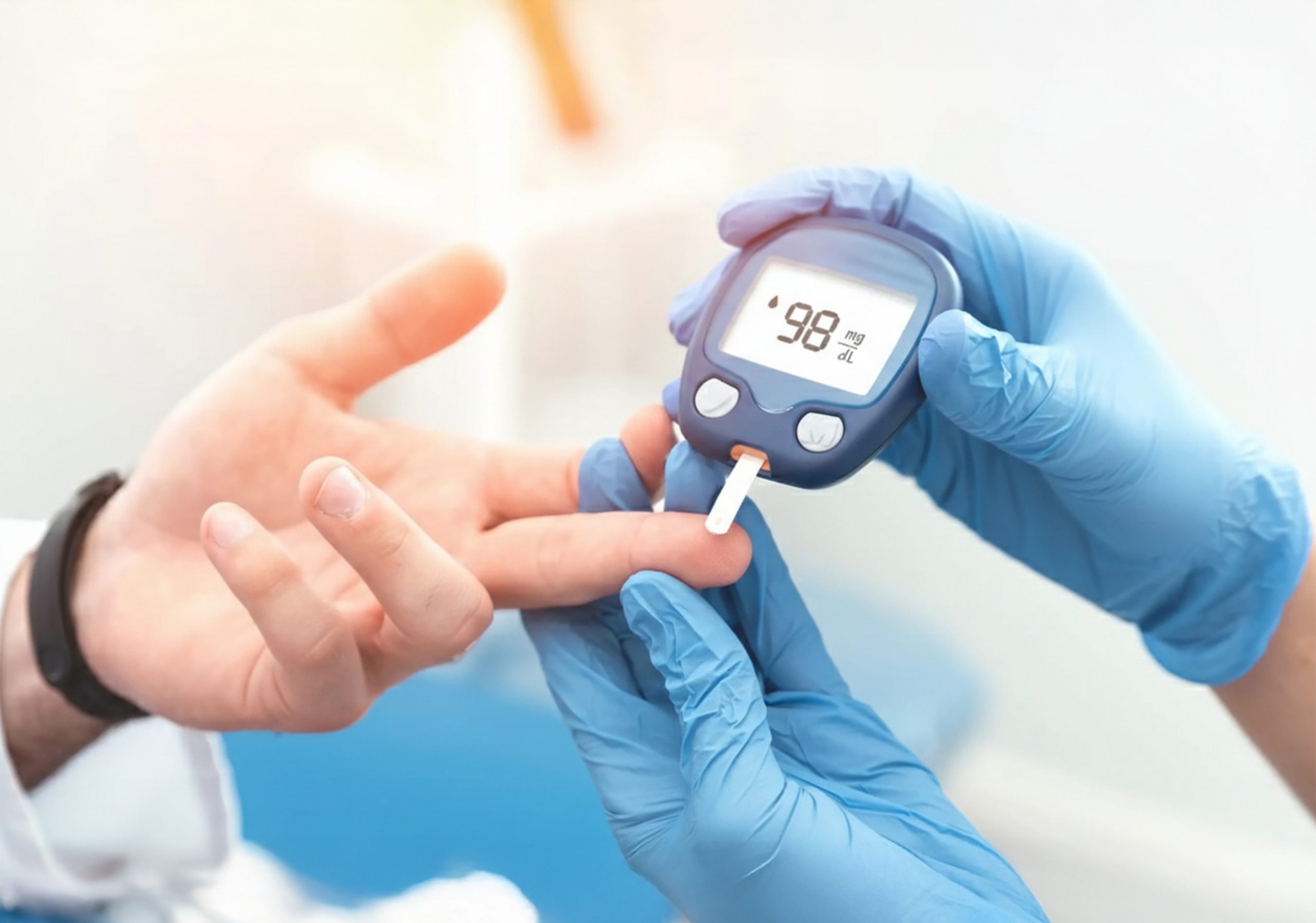Maintaining a healthy lifestyle is one of the most powerful ways to manage your blood sugar levels and prevent future health complications. This comprehensive guide will help you understand how blood glucose regulation works and offer practical, science-backed tips for blood sugar management.
Understanding Blood Sugar Control
Blood sugar control refers to keeping glucose levels within a healthy range. Glucose, derived from the carbohydrates you eat, is your body’s main energy source. It fuels your brain, muscles, and vital organs.
The hormone insulin, produced by the pancreas, helps move glucose from the bloodstream into your cells. When this process is disrupted — as in diabetes or insulin resistance — blood sugar levels rise, potentially leading to serious health problems over time.
Good blood sugar control is about maintaining balance: keeping glucose levels neither too high (hyperglycemia) nor too low (hypoglycemia).
The Importance of Managing Blood Sugar Levels
Whether or not you have diabetes, maintaining healthy blood sugar levels is essential. Chronically elevated glucose can silently damage your organs, nerves, and blood vessels.
Why It Matters
- Reduces risk of complications: Prevents long-term issues like heart disease, kidney failure, and nerve damage.
- Supports steady energy: Prevents fatigue, irritability, and sudden energy crashes.
- Improves mood and focus: Stable glucose helps maintain concentration and emotional stability.
- Protects long-term health: Keeps your metabolism efficient and your immune system stronger.
Even small improvements in blood sugar control can significantly reduce your risk of complications later in life.
Practical Tips for Blood Sugar Management
Managing blood sugar doesn’t have to be complicated. With the right habits, you can keep your glucose levels stable throughout the day.
1. Maintain a Healthy Diet
Food is the foundation of blood sugar control. Focus on balance — combining complex carbs, lean protein, and healthy fats in every meal.
Tips:
- Choose whole grains over refined carbs (brown rice, quinoa, oats).
- Include fiber-rich foods like vegetables, legumes, and fruits.
- Limit sugary drinks, pastries, and ultra-processed snacks.
- Eat smaller, more frequent meals to avoid spikes and crashes.
2. Exercise Regularly
Physical activity helps your body use insulin more effectively and lowers blood sugar naturally.
Aim for:
- At least 150 minutes of moderate exercise per week (like brisk walking, cycling, or swimming).
- Add resistance training two or three times weekly to improve muscle mass — muscles burn glucose even at rest.
Even a 10-minute walk after meals can make a noticeable difference in post-meal glucose levels.
3. Monitor Your Blood Sugar Levels
Regular monitoring helps you understand how food, exercise, stress, and sleep affect your glucose.
For those with diabetes:
- Use a glucometer or continuous glucose monitor (CGM).
- Track your readings daily or as advised by your doctor.
For prevention:
- Ask your healthcare provider about annual fasting glucose or HbA1c tests to monitor long-term control.
4. Manage Stress
Stress hormones like cortisol can raise blood sugar. Incorporate relaxation practices into your routine:
- Deep breathing exercises
- Yoga or meditation
- Spending time outdoors
- Getting enough sleep (7–9 hours per night)
5. Stay Hydrated
Drinking enough water helps your kidneys flush out excess sugar through urine. Aim for at least 6–8 glasses of water daily, and avoid sugary drinks.
Understanding Blood Glucose Regulation
Your body constantly works to keep blood sugar levels stable — a process called blood glucose regulation.
Two main hormones are responsible for this balance:
- Insulin: Lowers blood sugar by helping glucose enter cells.
- Glucagon: Raises blood sugar by signaling the liver to release stored glucose.
This balance ensures your body always has enough energy without allowing glucose levels to become too high. When insulin or glucagon levels are disrupted — as in diabetes — glucose balance becomes harder to maintain.
Other hormones like cortisol, adrenaline, and growth hormone also influence glucose regulation, especially during stress or fasting.
FAQ
1. What are some early signs of high blood sugar?
Common early signs include frequent urination, increased thirst, fatigue, blurred vision, and unexplained weight loss.
2. How can I lower my blood sugar quickly?
Try drinking water, taking a brisk walk, or eating a small protein-rich snack. However, if your blood sugar remains consistently high, consult your doctor for medical guidance.
3. Are there foods that help lower blood sugar naturally?
Yes. Foods rich in fiber, lean proteins, and healthy fats — such as leafy greens, oats, beans, and nuts — can help regulate blood sugar levels.
4. Can non-diabetics have blood sugar issues?
Absolutely. Many people experience prediabetes or insulin resistance before being diagnosed. Regular screening helps catch these early.
5. How often should I check my blood sugar?
This depends on your health status. People with diabetes may need daily checks, while others may benefit from annual testing during routine health exams.
Conclusion
Blood sugar control is essential for maintaining long-term wellness and preventing serious complications. With expert guidance from the diabetics doctors and endocrinologists of Burjeel Day Surgery Center, Al Reem, you can take meaningful steps toward healthier glucose levels through balanced eating, regular activity, stress management, and routine monitoring.
If you’re concerned about your blood sugar, experiencing symptoms, or simply want to understand your metabolic health better, schedule a consultation with the specialists at Burjeel Day Surgery Center, Al Reem today.
Take charge of your health — the right care can make all the difference.







